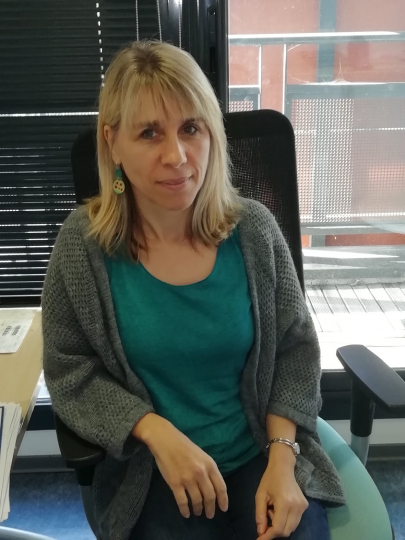Isabelle ArnalInstitut des neurosciences de Grenoble - CNRS / Inserm
Mes recherches
My research activity focuses on cytoskeleton regulation with a particular interest for microtubules. Following my PhD thesis at the Institute of Structural Biology in Grenoble under the supervision of Richard Wade (1994-1998), I joined the EMBL of Heidelberg in Germany for a post-doctoral position in Anthony Hyman’s and Eric Karsenti’s groups. In 2001, I was recruited by the CNRS as researcher in Denis Chrétien’s group at the UMR6026, CNRS, University of Rennes. Thanks to an ATIP-Avenir grant obtained in 2009, I started my own group in 2010 at the Grenoble Institute of Neurosciences. My team focuses on the molecular mechanisms underlying microtubule and actin regulation by neuronal effectors and on how these mechanisms contribute to fundamental processes such as neuronal differentiation and plasticity.
Mon projet ATIP-Avenir
Molecular mechanisms of microtubule regulation by neuronal MAPs
Abstract : Microtubules (MTs) are one of the major cytoskeleton components of neurons, essential for neuronal architecture and activity. They can be dynamic or stable and exist as linear bundles or single polymers. MTs cooperate with actin, another main cytoskeleton component, this synergy being crucial for proper neuronal development and function. MT-associated proteins (MAPs) are key MT regulators and are also able to bind actin, thus representing exciting candidates to control the microtubule/actin crosstalk. Deciphering how MAPs work is a crucial step to identify the molecular dysfunctions leading to neuronal pathologies that are linked to cytoskeleton alterations, including neurodegenerative and psychiatric disorders. The aim of the project is to decipher how neuronal MAPs -elaborate and control various MT arrangements -regulate actin behaviour and -contribute to the MT/actin crosstalk, in conditions related to physiological and pathological contexts. Our program relies on a broad range of approaches covering in vitro reconstitution of cytoskeleton organisation, structural analysis by cryo-electron microscopy techniques and cellular neurobiology.
